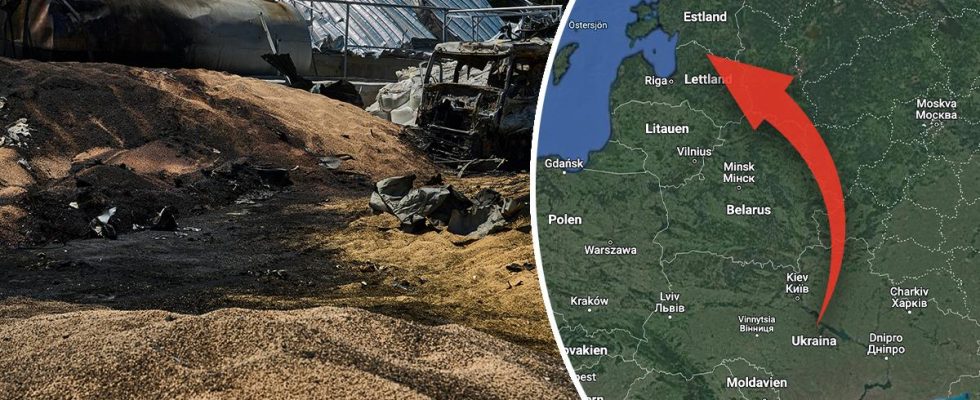Updated 20:48 | Published 20:37
Just over a week after Russia left the grain agreement with Ukraine, EU agriculture ministers are now meeting to find a solution going forward.
Among other things, it is proposed that the grain can go via the Baltic countries.
Russia announced last week that the grain deal with Ukraine, described as crucial to world food prices and important to many developing countries that feed on Ukrainian grain, will not be extended. The agreement was negotiated last July to secure grain exports on the Black Sea following Russia’s invasion of Ukraine.
According to Kremlin spokesman Dmitry Peskov, the agreement can be resumed once Russia’s demands are met.
“When the part of the Black Sea Agreement related to Russia is implemented, Russia will immediately return to the implementation of the agreement,” Peskov stated during a press conference, according to the AP news agency.
Bans Ukrainian grain
The EU countries’ agriculture ministers are meeting on Tuesday to discuss how to secure Ukrainian grain exports in the future.
A number of EU countries, including Poland, Romania and Hungary, banned the import of Ukrainian grain this spring on the grounds that the countries want to protect their own agricultural sector. According to AP, Poland’s Agriculture Minister Robert Telus has said that the countries will extend the ban this fall, but that Ukrainian grain will be allowed to be transported through their countries for export to other parts of the world. The ban has been criticized by Ukraine, writes the site Politico.
Lithuanian Agriculture Minister Kęstutis Navickas suggested that exports could go through five ports in Lithuania, Latvia and Estonia instead of across the Ukrainian-Polish border to prevent exports from getting stuck in Poland, Politico reports. According to the site, the five proposed ports should together be able to handle 25 million tons of grain per year.
Odessa port attacked
Both Russia and Ukraine are among the world’s largest grain exporters. Before the war, the countries accounted for almost a quarter of the world’s grain exports. Since the agreement expired, the Ukrainian port city of Odessa has been attacked with drones and rockets. The port is an important junction for the export of grain.
If Russia sticks to the decision not to extend the agreement, the world is likely to face increased food prices.
– There will be concern in the market if the agreement is not extended. Food prices will rise internationally because Ukraine cannot ship grain elsewhere, Lars-Erik Lundkvist, economic policy expert at the Farmers’ Confederation, previously told Aftonbladet.
Aftonbladet has asked Minister of Rural Affairs Peter Kullgren (KD) for a comment on the meeting and how he sees the future of Ukrainian grain exports.
